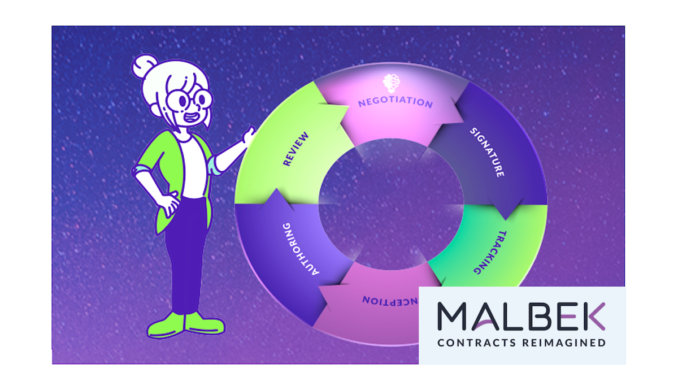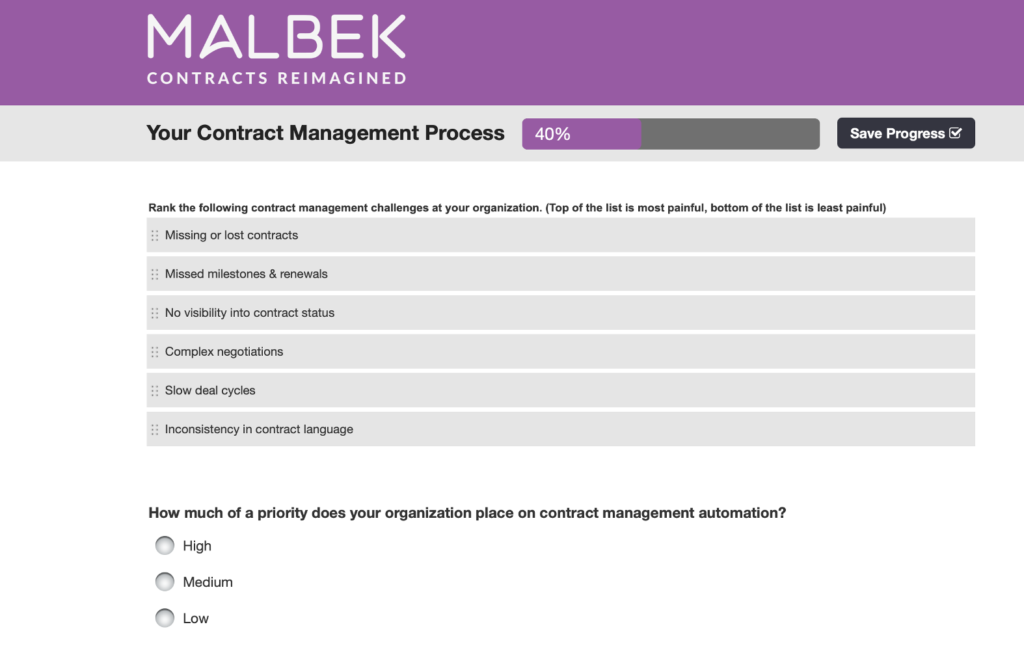
CLM company Malbek has launched a new functionality that identifies all contracts with ‘similar asks’ received from a counterparty during negotiation and then recommends to the user the best position to take, ‘balancing historical tolerance for risk and the need for speed’.
Using NLP, the system identifies key demands in the counterparty’s responses and matches them with the previous positions you have taken before. The US-based company said this will ‘eliminate the back and forth in negotiations by identifying your preferred positions and where you usually end up post-negotiation’.
I.e. it helps you to cut through wasted time spent on email table tennis when you already have the contract data about what positions you most likely will take – but you perhaps don’t refer to them because that data hasn’t in the past been at hand.
Once again, we can see this as a form of standardisation, but at a single business level. That is to say, a company is rationalising its contractual knowledge and applying these repeated positions, (AKA its own standards), to new negotiations.
Fundamentally this is all part of the general ‘industrialisation’ of the legal world, i.e. without some level of standardisation then efficiency in processes is hard to achieve – or what is achieved is soon lost again.
Also, this clearly has been designed to be used by a corporate inhouse legal team, but it would seem to this site that this kind of functionality could perhaps also be modified to be used by law firms to speed up their own negotiations with counterparties, especially for matters that are frequently recurring and of a less complex nature.
This ‘Redline Recommendation’ function is part of a wider suite of NLP-driven capabilities at Malbek, including out-of-the box provision identification for over 70 key clause types
Hemanth Puttaswamy, CEO of Malbek, said: ‘It is our belief that AI should be transparent and not intimidating for users and should be designed to get the most from the entire contracting lifecycle, not just from a single point in time. The new Redline Recommendation innovation is a valuable addition to our platform and will help our customers accelerate contract negotiation cycles even more.’
The company has also launched a handy Q&A application that guides you through the process of assessing your CLM needs and then recommends what you should do next in a short report. Now, clearly they hope that people will use this to decide to pick Malbek from a growing field of competing CLM companies, but this site had a go and it did help to illuminate the key questions you may need to consider when making such a big decision, whichever way you go. You can check it out here.

Overall, what we are seeing now is a tremendously competitive era for companies seeking to win a share of the inhouse legal tech spend. That in turn is driving forward innovation and product development as each company seeks to provide something better than their rivals.
The end result is going to be much better offerings for inhouse legal teams than existed some years ago. This should in turn deliver more value and that will encourage more corporates to invest in legal tech. This also hopefully will happen at the same time as inhouse teams focus more on better processes and better allocation of talent.